Should America continue to be a world leader?
- Published
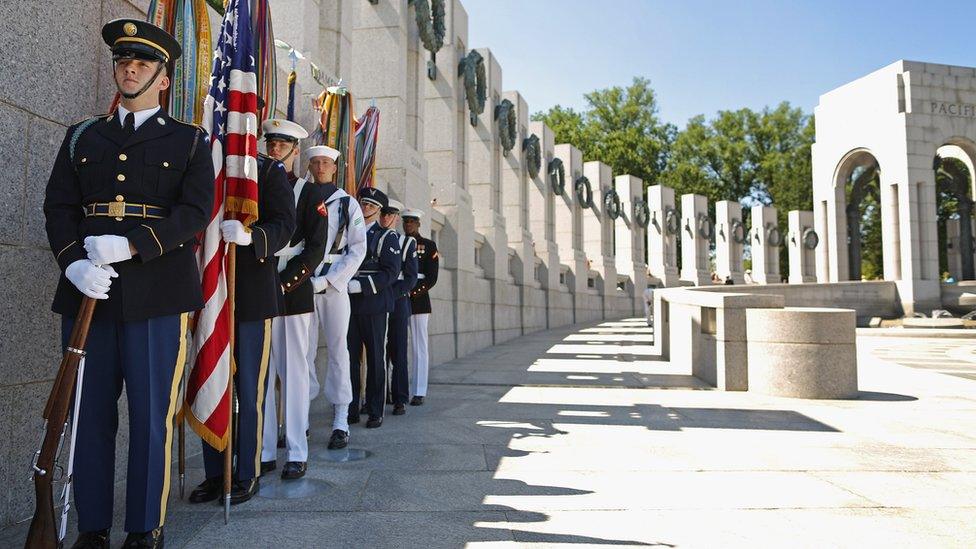
Does the US still want to be a global leader?
Towering slabs of granite and a wall of gold stars are part of Washington's World War II memorial, commemorating the US soldiers who lost their lives in that conflict. It is a suitably imposing tribute to a decisive intervention that sealed America's status as a 'superpower.'
But since then, much has changed, most obviously, the collapse of the Soviet Union and the rise of China.
The wars in Iraq and Afghanistan have changed perceptions about what American global leadership can and should do, both in the US and abroad.
So what might that mean for the next American president's foreign policy?
'Don't do stupid stuff'
It is often said that President Obama inherited two wars and an economic crisis when he took office in January 2009.
At the time, he made it plain that he wanted to depart from the hyper-activity of the Bush years and take a different approach to US foreign policy.
In a recent interview, his mantra was said to be, 'Don't do stupid sh*t'.
Speaking at a panel discussion for Radio 4's World Tonight programme at the Carnegie Endowment For International Peace in Washington, former Democrat Congresswoman Jane Harman is dismissive: "Don't do stupid stuff isn't a foreign policy strategy."
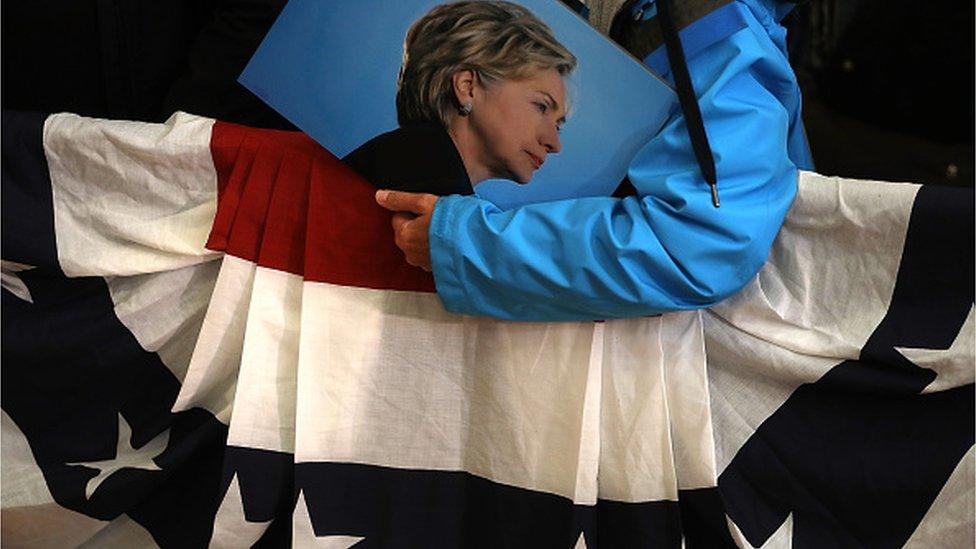
Hillary Clinton has clinched the Democratic nomination
An expert in military and intelligence issues, she hints broadly at who she wants to see in the White House,
"The next president, whoever SHE may be... needs to articulate a strategic narrative... we don't explain ourselves well... a foreign policy has to articulate America's values and interests."
Assertiveness
For Bill Burns, former deputy Secretary of State under Hillary Clinton and John Kerry, the next president's foreign policy priority is clear, the Asia Pacific region and China in particular.
He points to Beijing's claim to control much of the South China Sea as evidence of a more assertive foreign policy.
Trump v Clinton on foreign policy
Why this election will make history
Clinton hails 'milestone for women'
Why has Trump caught Clinton in the polls?
But Ambassador Burns believes the next president must call on the co-operation of allies all over the world.
"This is not just about the US and China but it's about international rules, since about half the world's (shipping) tonnage goes through the South China Sea."
Threat
Ambassador Burns was also the diplomat President Obama entrusted to open up secret negotiations with Tehran in 2013.
Those talks paved the way to the 2015 Iran nuclear deal, restricting the country's nuclear activities, in return for a lifting of sanctions.
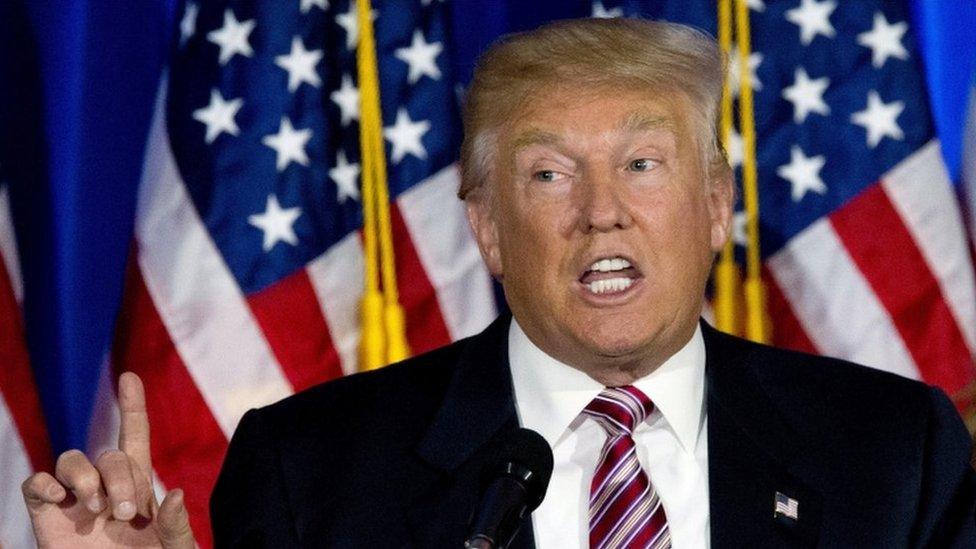
Trump has said he would "dismantle" what he termed a disastrous nuclear weapons deal
But the agreement remains controversial among US Republicans (Israel and the Gulf States are critics too) who don't believe Iran should be trusted and point to Tehran's support for militant groups like Hezbollah.
Bill Burns believes Iran can now be prevented from acquiring a nuclear weapon. But his message to the next president, is to be wary.
"I never anticipated, at the start of those secret talks, that there was going to be an overnight transformation of Iranian behaviour in the region or in US/Iranian relations. Iran and its actions are going to pose a threat to our friends and our interests for some time to come."
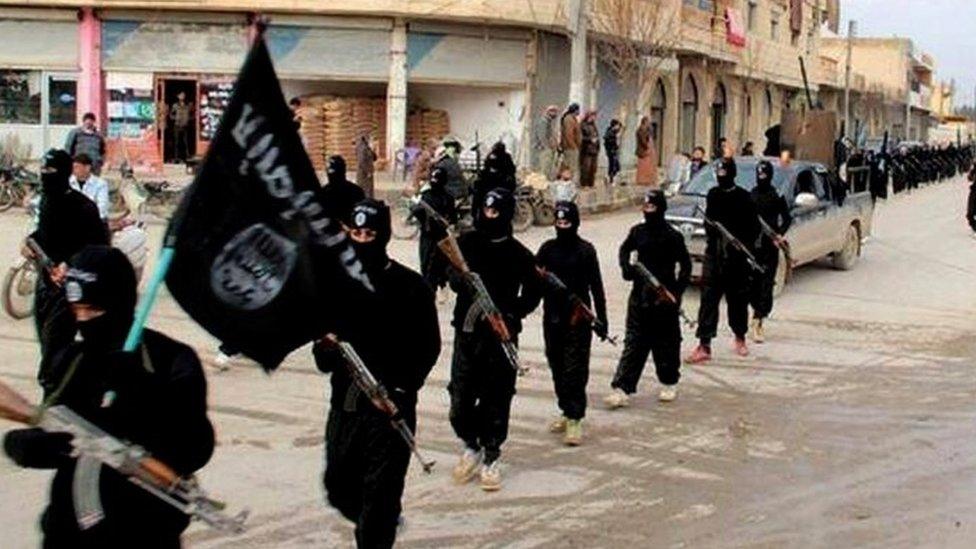
The threat of so-called Islamic State will continue to dominate US foreign policy debate
Iran, along with Russia, is one of the key players in the Syrian conflict and a key ally of President Assad.
Iranian backed militias are fighting to defeat so-called Islamic State (Isis) in Iraq.
It is now just one of many countries taking part in the multi-layered conflicts that are playing out in both Iraq and Syria.
Chaos
Stephen Hadley was National Security Advisor under George W. Bush.
He believes that, despite Barack Obama's stated determination to withdraw from the region, it is inevitable under the next president that there will be a much greater US presence in the Middle East.
"You cannot just combat Isis in the region and think that you will solve the problem. They (Iraq and Syria) are descending into chaos and these are grounds from which 'Isis 2' will come if we don't address the governance and stability issues."

Five ways to predict the next president
Rajini Vaidyanathan looks at how the outcome of the US election could be predicted

Stephen Hadley believes the next president will come to power in difficult times.
He argues there was an assumption, after the collapse of the Soviet Union, that the liberal international order that was established after World War II had triumphed.
Instead he says it is now being undermined by "the authoritarian state capitalists in Russia and China... from the disorder in the Middle East and from what North Korea is doing in terms of proliferation."
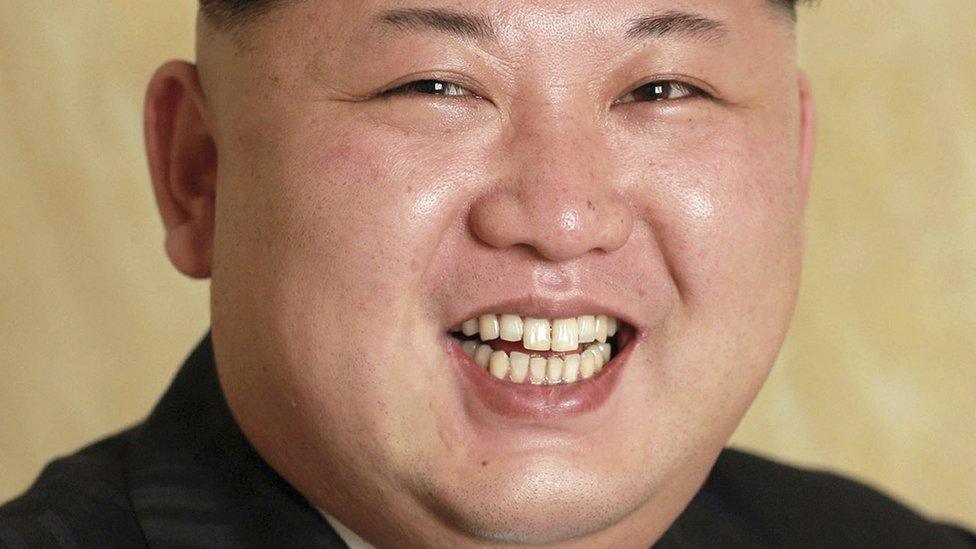
The North Korean leader has praised Donald Trump
Leadership
But does the US still want to be the leader of the international world order?
Stephen Hadley says that should be discussed during the election campaign.
Jane Harman counters by saying the question deserves a nuanced answer.
"Being front and centre in all the controversies in the world... no thank you. (The US is) happy to be a partner with others."
That is an approach that may be welcomed by some but after decades of looking to America for leadership, is the rest of the world actually prepared for what that might mean?
- Published29 July 2016
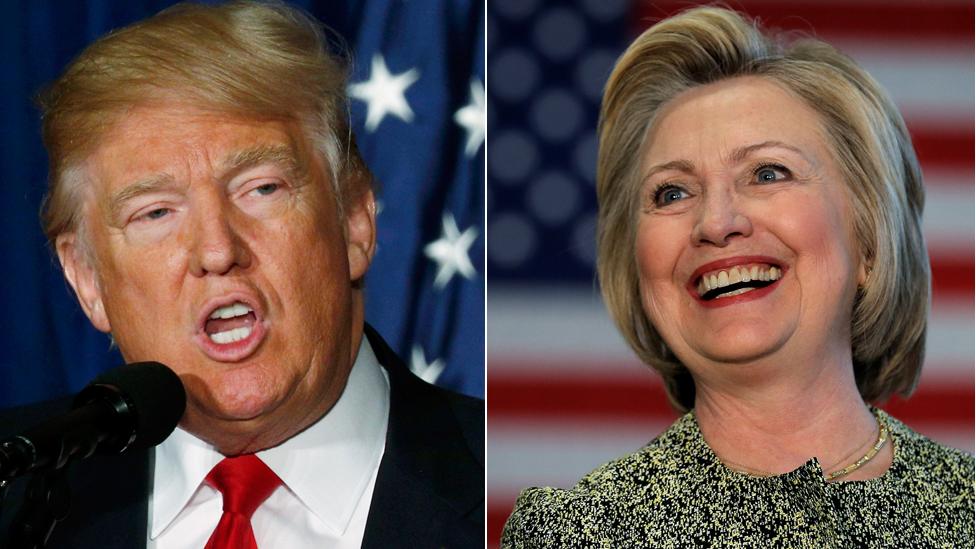
- Published8 June 2016
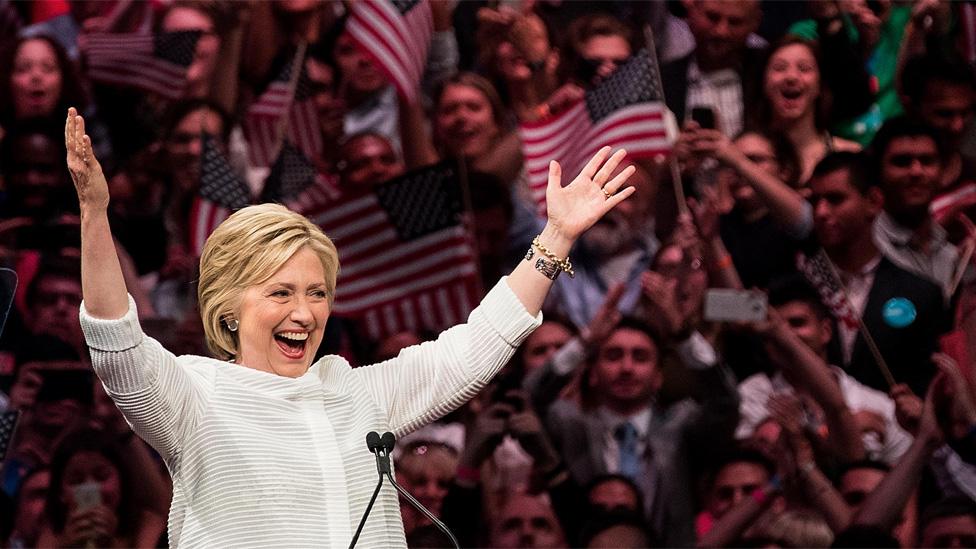
- Published8 May 2016
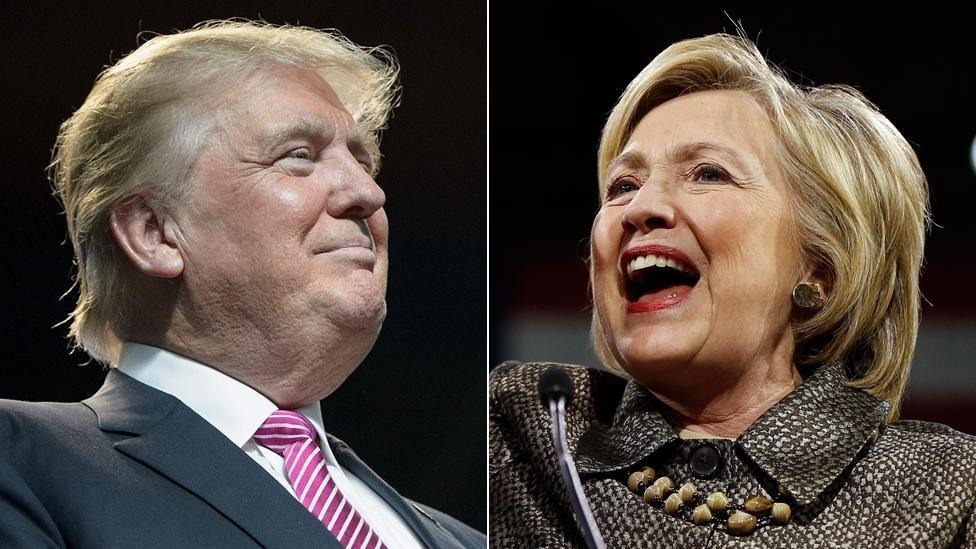
- Published30 May 2016
- Published24 May 2016